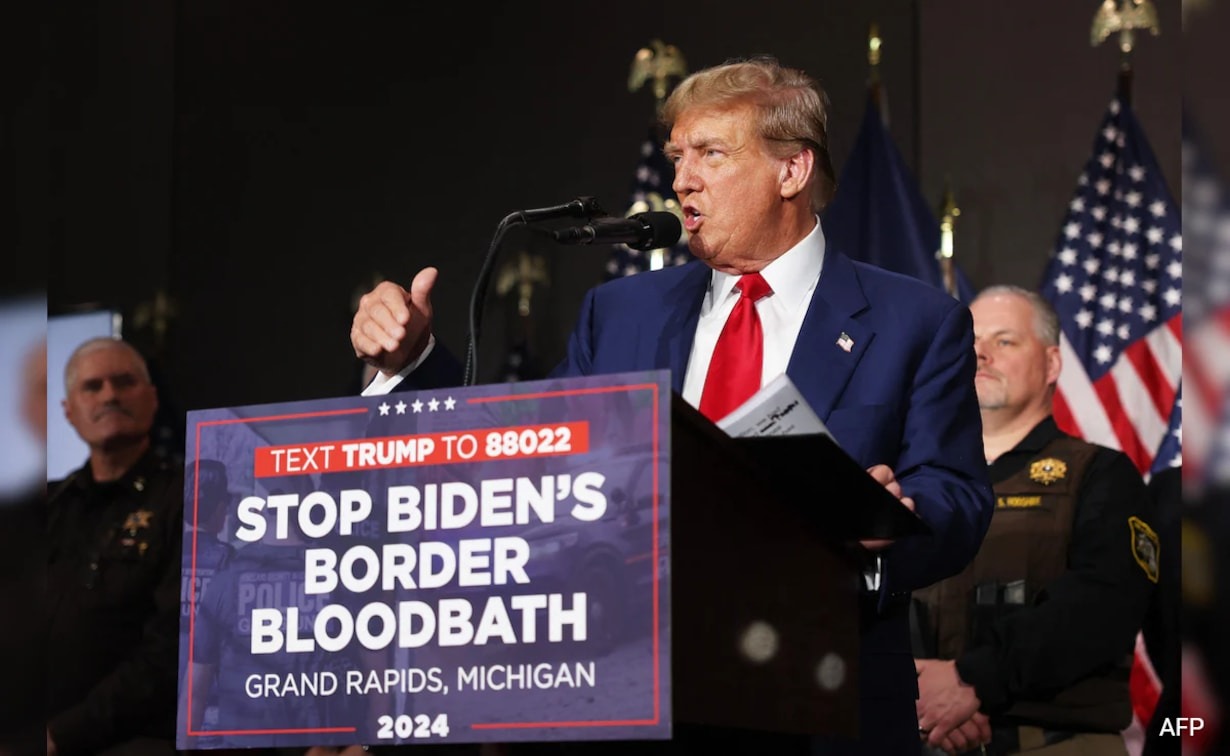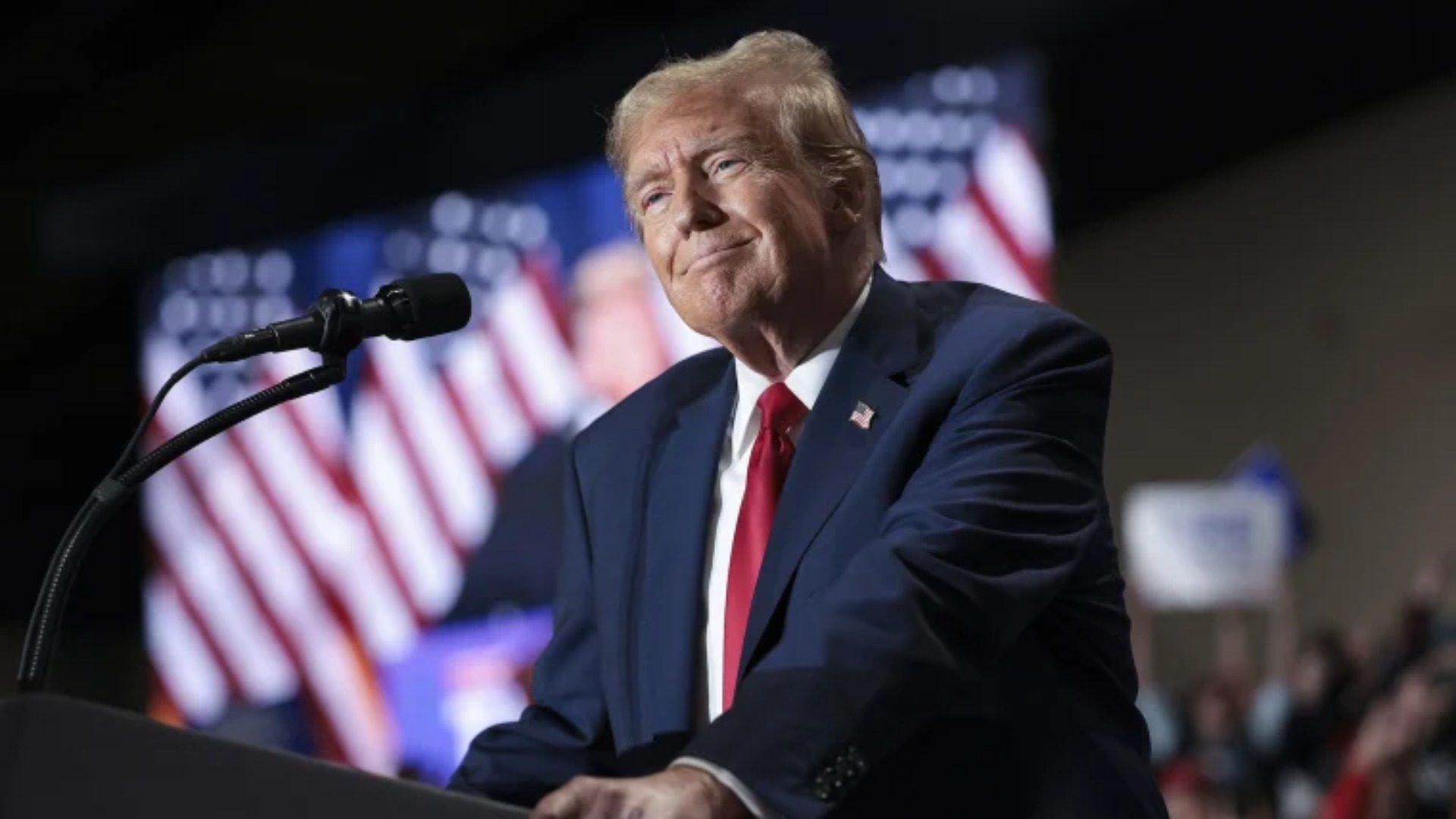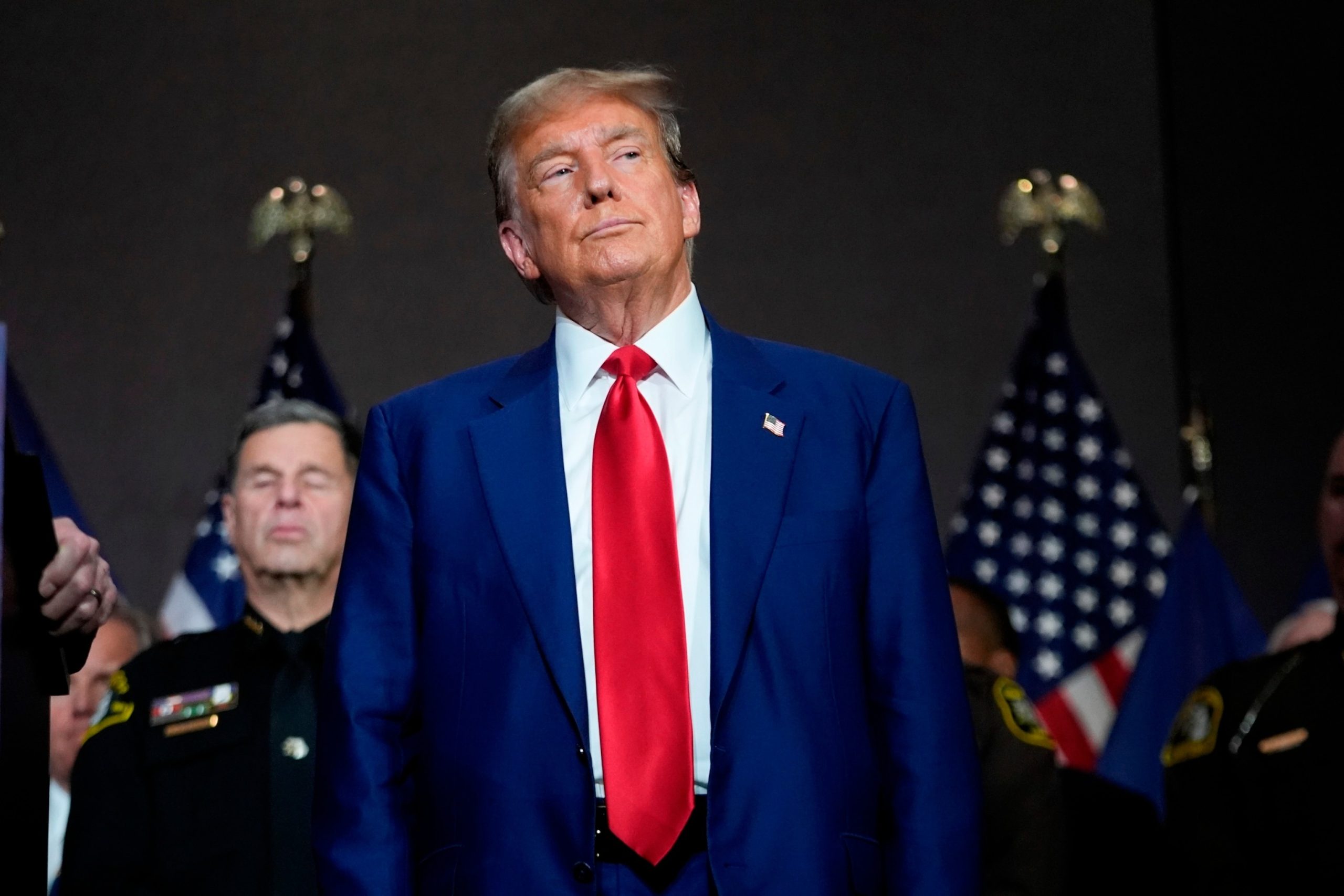Donald Trump escalated his rhetoric about a looming “bloodbath” in America during a campaign event in Grand Rapids, Michigan, asserting that communities across the U.S. are at risk of “plunder, rape, and slaughter” by illegal immigrants.
Trump’s comments, among his most charged on the topic of border security, painted a dire picture of the country under President Joe Biden’s leadership, suggesting it is overwhelmed with drugs and under siege by foreign criminal organizations.
In his speech, Trump described the situation as a “border bloodbath” that he claims is ravaging the nation. He promised an immediate cessation of these issues upon his return to office. This address coincided with the Republican National Committee launching a website, BidenBloodbath.com, accusing Biden of facilitating an “invasion.”

Donald Trump Speaking (Credits: NDTV)
Trump’s use of the term “bloodbath” first emerged during a speech in Ohio, where he tied the potential economic fallout to his electoral defeat. Later, in Wisconsin, he continued this narrative, accusing Biden of permitting “an invasion of our country” and vowing to rid the nation of what he called “migrant armies of dangerous criminals.”
The Biden campaign and other Democrats have accused Trump of inciting “political violence” with his choice of words, though Trump’s team argues he is referencing economic turmoil. Critics worry Trump’s penchant for provocative language heightens the risk of violence, whether through social media or at his rallies.
Trump’s speeches in Michigan and Wisconsin—both key battleground states—aimed to energize his campaign amidst legal battles and allegations.

Donald Trump at a Campaign (Credits: Newsx)
Despite facing over 80 felony charges, Trump has remained a vocal critic of his opponents, even jesting about authoritarian rule while maintaining his stance as a defender of democracy against what he sees as threats posed by Biden and his administration.
The Democratic National Committee has labeled Trump hypocritical on immigration, highlighting his role in derailing a bipartisan border security deal. Trump’s return to Grand Rapids was symbolic, mirroring his 2016 campaign finale, which contributed to his presidential victory.
With Michigan flipping back to Democrats in 2020 and the upcoming election poised to be closely contested, Trump’s campaign strategy focuses on critical swing states.
Meanwhile, Biden has actively campaigned in these pivotal states, bolstering his position with a growing fundraising lead over Trump, who faces financial pressures from his legal defenses. As the election approaches, both candidates are vying for an advantage in states that could decisively impact the election’s outcome.























